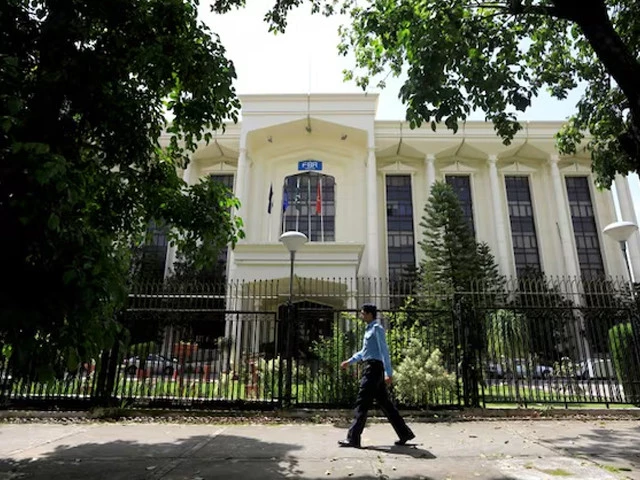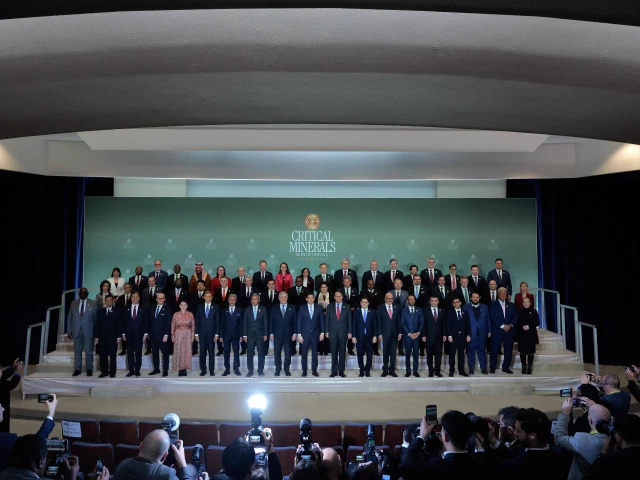Business
PSX slumps over 1,700 points as investor sentiment weakens | The Express Tribune
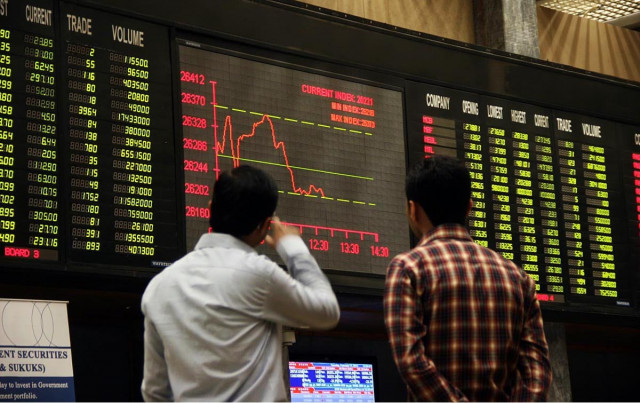
Despite decline, trading activity remained strong, with volumes reaching 860m shares, traded value standing at Rs34.8b
The Pakistan Stock Exchange lost further ground as the benchmark KSE-100 index fell by more than 1,700 points, mainly due to the absence of major triggers to encourage investors to build new positions. A day earlier, the market had shed 1,521 points, driven by profit-taking at higher valuations.
Although trading opened positively and stayed in the green for a short time, the market began to decline before midday. The index hit an intra-day low of 159,217 points later in the session and closed slightly above that level. At the close, the KSE-100 index recorded a drop of 1,703.58 points, or 1.06%, to settle at 159,578.19.
Topline Securities, in its market review, said, “The KSE-100 index ended the session on a negative note on Wednesday. Throughout the day, the benchmark oscillated between an intra-day high of 162,052 and a low of 159,217. The bearish sentiment was primarily driven by the absence of fresh market triggers following the conclusion of the corporate results season.”
Major index heavyweights — including Fauji Fertiliser Company, Engro, Lucky Cement, Meezan Bank, and Systems Limited — were the main laggards, collectively shaving 902 points off the benchmark.
Despite the decline, trading activity remained strong, with volumes reaching 860 million shares and traded value standing at Rs34.8 billion, the brokerage added.
Business
Mandelson’s lobbying firm cuts all ties with disgraced peer amid Epstein fallout

A lobbying firm co-founded by Peter Mandelson has severed all connections with the peer.
Its chief executive, Benjamin Wegg-Prosser, has also announced his departure.
The decision follows mounting pressure on Global Counsel over Lord Mandelson’s association with convicted sex offender Jeffrey Epstein.
The firm confirmed that the former US ambassador no longer holds a stake in the business nor exerts any influence.
Mr Wegg-Prosser said he was stepping down as it was “time to draw a line” between the firm and Lord Mandelson’s “actions”.
Global Counsel added in a statement that it had reached an agreement to fully divest the peer’s shares, thereby ending all connections with him.
Its chair, Archie Norman, said: “With the completion of this process today, Peter Mandelson no longer has any shareholding, role or association with Global Counsel and has no influence over the firm in any capacity.”
Mr Wegg-Prosser said: “With the completion of the divestment of Peter Mandelson’s stake in the business, I feel that now is the time to draw a line between Global Counsel and his actions.
“I have nothing but immense pride in the business I founded and the work our amazing team deliver every day.”
He has been replaced as head of the firm by its managing director Rebecca Park, and his page on the company’s website has already been taken down.
Ms Park has also acquired the remaining shares that were held by Lord Mandelson.

Lord Mandelson co-founded the London-based firm with Mr Wegg-Prosser in 2010 after Labour lost the general election.
It is understood that Barclays has cut ties with Global Counsel amid the scrutiny.
Lord Mandelson was sacked as US ambassador in late 2025 after it emerged that he had maintained ties with Epstein after the financier was jailed for a child sex offence.
Epstein killed himself in a prison cell in 2019 while awaiting trial on further child sex charges.
Business
Stock market today: Here are the top gainers and losers on NSE, BSE on February 6 – check list – The Times of India

Equity markets ended slightly higher on Friday after the Reserve Bank of India left interest rates unchanged, a move that was widely expected, and announced a proposal to allow banks to lend to Real Estate Investment Trusts (REITs) under prudential safeguards.The 30-share BSE Sensex rose 266.47 points, or 0.32 per cent, to close at 83,580.40. The index recovered sharply in the final hour, jumping over 650 points from the day’s low of 82,925.35, helped by late buying in select stocks. The NSE Nifty also finished higher, gaining 50.90 points, or 0.20 per cent, to settle at 25,693.70 after a volatile session.
Nifty50 top gainers
| Company Name | Current Price (Rs) | Price Change | % Change |
|---|---|---|---|
| ITC | 326.35 | +16.20 | +5.21% |
| Kotak Bank | 422.35 | +13.60 | +3.33% |
| HUL | 2,424 | +69.80 | +2.97% |
| Bajaj Finance | 982.00 | +17.30 | +1.79% |
| Bharti Airtel | 2,023 | +30.60 | +1.54% |
| Power Grid | 292.80 | +3.45 | +1.20% |
| Titan Company | 4,141 | +43.20 | +1.06% |
| Bajaj Finserv | 2,021 | +20.70 | +1.04% |
| Shriram Finance | 1,001 | +9.00 | +0.91% |
| ICICI Bank | 1,408 | +11.50 | +0.83% |
Nifty50 top losers
| Company Name | Current Price (Rs) | Price Change | % Change |
|---|---|---|---|
| HDFC Life | 703.50 | -17.21 | -2.39% |
| Tech Mahindra | 1,616 | -30.21 | -1.84% |
| TCS | 2,940 | -51.20 | -1.72% |
| SBI Life | 1,987 | -31.00 | -1.54% |
| Tata Motors PV | 368.90 | -5.25 | -1.41% |
| Bajaj Auto | 9,519 | -129.00 | -1.34% |
| Adani Ports SEZ | 1,550 | -20.71 | -1.32% |
| Wipro | 230.40 | -2.99 | -1.29% |
| Eternal | 283.55 | -3.31 | -1.16% |
| Asian Paints | 2,405 | -27.10 | -1.12% |
Sensex top gainers
| Company Name | Current Price (Rs) | Price Change | % Change |
|---|---|---|---|
| ITC | 326.35 | +16.20 | +5.21% |
| Kotak Bank | 422.35 | +13.60 | +3.33% |
| HUL | 2,424 | +69.80 | +2.97% |
| Bajaj Finance | 982.00 | +17.30 | +1.79% |
| Bharti Airtel | 2,023 | +30.60 | +1.54% |
| Power Grid | 292.80 | +3.45 | +1.20% |
| Titan Company | 4,141 | +43.20 | +1.06% |
| Bajaj Finserv | 2,021 | +20.70 | +1.04% |
| ICICI Bank | 1,408 | +11.50 | +0.83% |
| Axis Bank | 1,342 | +11.00 | +0.83% |
Sensex top losers
| Company Name | Current Price (Rs) | Price Change | % Change |
|---|---|---|---|
| Tech Mahindra | 1,616 | -30.21 | -1.84% |
| TCS | 2,940 | -51.20 | -1.72% |
| Adani Ports SEZ | 1,550 | -20.71 | -1.32% |
| Eternal | 283.55 | -3.31 | -1.16% |
| Asian Paints | 2,405 | -27.10 | -1.12% |
| HCL Tech | 1,594 | -16.30 | -1.02% |
| Infosys | 1,506 | -14.50 | -0.96% |
| HDFC Bank | 941.00 | -8.71 | -0.92% |
| Trent | 4,095 | -36.31 | -0.88% |
| SBI | 1,066 | -7.50 | -0.70% |
Earlier in the day, markets had opened cautiously and slipped into the red before staging a modest recovery.On the policy front, the RBI’s six-member Monetary Policy Committee unanimously voted to keep the repo rate unchanged at 5.25 per cent. The central bank also retained its neutral stance, indicating it may stay on hold for now. The decision came as inflation remained under control and growth concerns eased following higher government spending in the Budget and reduced tariff pressures after a trade deal with the United States, news agency PTI reported.Announcing the policy, RBI Governor Sanjay Malhotra said, “To further promote financing to the real estate sector, it is proposed to allow banks to lend to REITs with certain prudential safeguards.” Market participants said this move could improve long-term funding visibility for the real estate sector and the broader credit ecosystem.Among Sensex stocks, ITC was the top gainer, jumping over 5 per cent. Kotak Mahindra Bank, Hindustan Unilever, Bharti Airtel, Bajaj Finance, Power Grid and Bajaj Finserv also ended higher. On the other hand, Tata Consultancy Services, Tech Mahindra, Adani Ports, Asian Paints, Eternal and HCL Tech were among the laggards.Commenting on the session, Vinod Nair, head of research at Geojit Investments Limited, said domestic markets remained subdued for most of the day before recovering on the back of buying in FMCG and private banking stocks.“The RBI’s policy announcement was broadly in line with expectations, maintaining status quo on interest rates while reiterating a constructive growth outlook,” he said, as quoted by news agency ANI.However, he added that markets had expected a slightly more dovish tone. The RBI’s decision to retain a neutral stance led to a rise in India’s 10-year bond yields. Nair also pointed out that global investors remain focused on US-Iran negotiations, crude oil prices, and developments in artificial intelligence and technology.Foreign institutional investors sold shares worth Rs 2,150.51 crore on Thursday, according to exchange data.In global markets, Asian indices such as South Korea’s Kospi, Shanghai’s SSE Composite and Hong Kong’s Hang Seng ended lower, while Japan’s Nikkei closed higher. European markets were mostly trading in the green. In the US, stocks had ended sharply lower overnight, with the Nasdaq falling 1.59 per cent.Meanwhile, Brent crude rose 1.20 per cent to $68.34 per barrel. On Thursday, the Sensex had dropped over 500 points, while the Nifty had declined more than half a per cent.
Business
Head of firm founded by Mandelson to quit after Epstein release
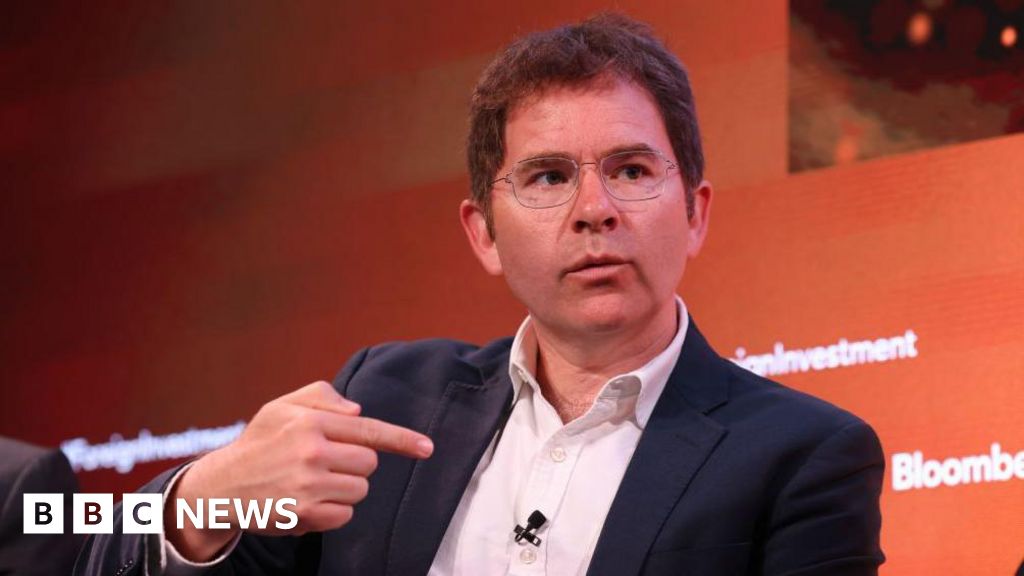
Benjamin Wegg-Prosser concluded his association with Lord Mandelson – and references to them both in the Epstein files – was doing the business Global Counsel harm.
Source link
-

 Business1 week ago
Business1 week agoPSX witnesses 6,000-point on Middle East tensions | The Express Tribune
-

 Tech1 week ago
Tech1 week agoThe Surface Laptop Is $400 Off
-

 Tech1 week ago
Tech1 week agoHere’s the Company That Sold DHS ICE’s Notorious Face Recognition App
-

 Tech4 days ago
Tech4 days agoHow to Watch the 2026 Winter Olympics
-

 Tech7 days ago
Tech7 days agoRight-Wing Gun Enthusiasts and Extremists Are Working Overtime to Justify Alex Pretti’s Killing
-

 Entertainment1 week ago
Entertainment1 week agoPeyton List talks new season of "School Spirits" and performing in off-Broadway hit musical
-
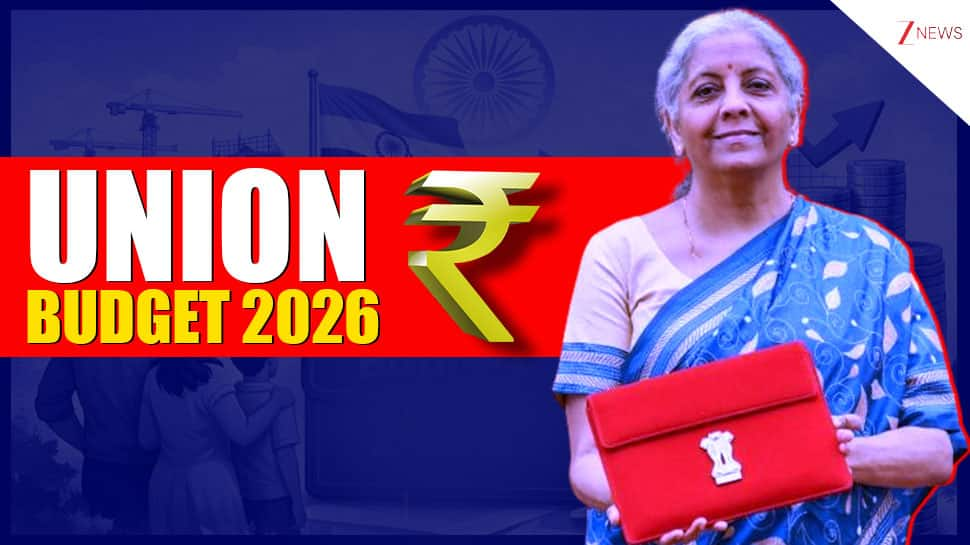
 Business1 week ago
Business1 week agoBudget 2026: Defence, critical minerals and infra may get major boost
-

 Sports1 week ago
Sports1 week agoDarian Mensah, Duke settle; QB commits to Miami



